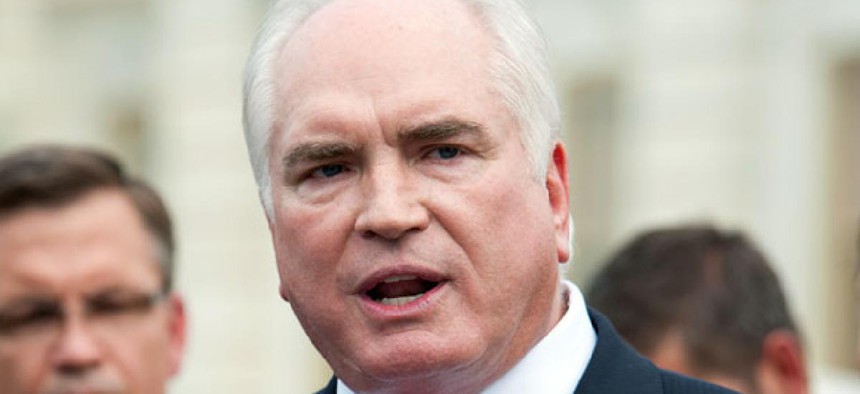
Rep. Mike Kelly, R-Pa. Flickr user republicanconference
Lawmaker: GSA executive under investigation shouldn’t be paid
In op-ed, congressman promises to propose legislation for putting federal officials charged with serious offenses on unpaid leave.
As General Services Administration executive Jeff Neely gains infamy on Capitol Hill for his role in the agency’s 2010 Las Vegas conference scandal, one lawmaker wants to see Neely’s pay cut off, along with that of future federal executives who land in hot water.
Rep. Mike Kelly, R-Pa., a member of the House Oversight and Government Reform Committee, decried the fact GSA still pays the Region 9 Public Buildings Service commissioner, currently under investigation for his role in planning the $820,000 conference, as well as for accusations that he stole iPods and other personal electronics from GSA.
“There are no mechanisms available to GSA to remove the individuals from the payroll while the disciplinary process progresses,” the agency’s Office of Congressional Affairs told Kelly.
In a Thursday post for The Hill’s Congress blog, Kelly promised to propose legislation to give federal agencies the discretion to freeze the pay of senior executives under investigation for wrongdoing until they have been cleared or convicted. If cleared, Kelly wrote, the executives would receive back pay plus interest.
“Mr. Neely’s continued compensation throughout this investigation only adds insult to injury,” Kelly wrote. “The American taxpayer took a proverbial bath under the leadership of Mr. Neely, losing more than $1 million under his watch. Now that he’s under ours, we will do everything we can to make sure it never happens again.”
When reached for comment, Kelly spokeswoman Julia Thornton said the congressman “believes career Senior Executive Service officials, who represent some of the highest paid employees within the federal government, should be held to the highest level of accountability,” adding unpaid leave “should be an option for agency heads who are handling cases of significant ethical and potentially criminal violations.”






